Ivy Blue is an alternative artist from Te Aroha, New Zealand, who sings, plays guitar, and uses a loop pedal. He has released 5 studio albums and 1 Studio EP (with help from a full band). Ivy Blue’s music has been critically acclaimed around the world and his live shows are nothing short of spectacular pairing unique visual experiences with a back-catalogue armed with hits. Ivy Blue has just completed a European tour in support of his 5th album Present Shapes and is set to go on the Grand Circles Tour in 2018 behind his upcoming 7th album 21. 21 has been available for purchase on all major digital stores and streaming platforms from November 30th 2017.
- How long has the project Ivy Blue been going and how did you decide on that specific moniker?
Ivy Blue: Ivy Blue began as a duo project in late 2013 (I believe in November) between me and a friend. The name came about because we were having trouble deciding so we put 10 names or so each into a hat and decided to draw two out and Ivy Blue was the name that came from that.
- Who were your first musical influences that you can remember?
Ivy Blue: Robbie Williams was the first artist I remember really connecting with. His music taught me language and communication. If it wasn’t for him I’d be a really lost cause and I could not thank him enough for all that he’s given me in his life through his music. I hope one day I get that chance but for now I just hope that my making of music makes him proud.
- Which artists are you currently listening to?
Ivy Blue: Ed Sheeran, Robbie Williams, and U2 are the main ones right now but there’s also a lot of Midnight Oil, Paramore, Coldplay, and others in the mix.

- Do you remember the first piece of musical equipment that you actually purchased? And which is the one piece of hardware or software you’re still looking to add to your setup now?
Ivy Blue: The first piece of musical gear I brought on my own were guitar picks and guitar strings. I still use the same brand of strings now and the brand serves me justice with the quality and durability of what they create. But the main piece of gear besides my guitar is a loopstation that I use to recreate each layer of the song live and record over each one to build the song from the ground up each night. That’s an amazing piece of gear to play with and I plan to do more with it as time goes by.
- How and where do you do most of your recording and production work?
Ivy Blue: I record with my friends (who like to remain unidentified) in a recording studio or rehearsal space in Hamilton, New Zealand or Te Aroha, New Zealand. I can’t really go into the how as we keep experimenting and changing it each time we go to record but it’s always started as a nucleus of a few friends (once with two but now a few more) bashing it out live and creating magic. That’s how it should start to me. I don’t know how it would start any other way.
- Studio work and music creation, or performing and interacting with a live audience, which do you prefer?
Ivy Blue: I can’t give you a clear-cut answer here Rick. Because each of those things has both pros and cons. I love creating music and releasing it to the world, but to see how people react to the songs as you’re playing them live is also an advantage. You’ve got me stumped there. If I ever figure it out I’ll let you know.
- Which one of your latest original songs gets your emotion and adrenalin pumping the most, when performing it, and why?
Ivy Blue: The only songs from 21 that I’ve performed to date are Red Hill Town and I Promise back when I was on tour in Europe trying them out on an audience and out of the two I would say that I Promise is more emotional for the audiences I have played it for. Red Hill Town is more of the adrenalin punch for an audience as well. But for me out of the two I tend to enjoy playing I Promise more because we both share that same emotion. I’m looking forward to playing more of the album when I’m out again next year.
- On which one of these songs do you feel you delivered your best performance so far, from a technical point of view?
Ivy Blue: I think that the way that the music is written 21 is certainly an improvement on Present Shapes which I think on reflection needed more time to be worked on. Present Shapes was an unnecessary rush by necessity and I am tending to go more towards not playing some of those songs as a result. I think technically 21 has delivered a more polished performance and it’s up there with 19 and Illusions on the scale. I hope it’s equally as well received by others.
- Could you describe your creative process on the basis of a musical piece or album that’s particularly dear to you? Where do ideas come from, what do you start with and how do you go about shaping these ideas?
Ivy Blue: For the song Red Hill Town, we just started talking about our experiences going to primary school together (as most of us who work together in the studio went to Elstow-Waihou School together when we were young) so touching on those younger days inspired us to do a nod to home and our drummer came up with a nice drum riff that we just played a country-like sort of thing to. That process also translated throughout the album as we would just talk about our memories and our regrets. There’s a lot of stuff on this album and the baggage wasn’t always easy to unpack; but once we unpacked that stuff it was easier to put them to music. That’s just how it was done for 21. We keep changing the process around all the time so there’s no one textbook way of doing things (although after Present Shapes we’ve learned to focus our ideas into one specific idea and not a kaleidoscope of things). And it’s changing now, but let’s talk about that process when we’re on the other end.
- What were your main compositional and production challenges in the beginning of your career and how have they changed over time?
Ivy Blue: The main thing was getting the things I wanted to say in the right framework. The Illusions album while it is amazing and may well be considered a masterpiece by some- I wrote that album about a relationship and break up that was very difficult thing to write about because I didn’t want to offend anyone in the process, let alone the person I was with. Forever December was the hardest song to write because it touched on the nerve of trying to mend my heart without breaking hers as hard as she broke mine but as the years have grown it’s become something else. And I think that’s how my creative process works. It starts as one idea and then once it’s out and each song matures it becomes something else. That’s how I know my compositional goals have been achieved.
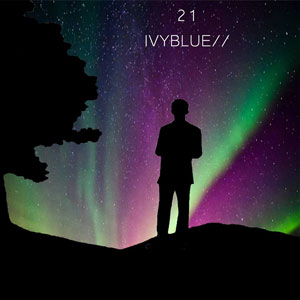
- What are currently some of the most important tools and instruments you’re using in creating your sound?
Ivy Blue: As I said above the main thing I’m using is a loopstation with a guitar into an amplifier by VOX; but I do use distortion and delay as well in the live setting. In the studio it’s harder to say because there are others playing with me so I can go balls to the wall in a way and not have as many restrictions. But the set-up is still the generally same idea.
- How essential do you think video is in relation to music? Do you have any videos for public viewing? If not are you planning on producing any in the near future?
Ivy Blue: Video helps. It tells the story. But to me I feel that the videos are more delicate than the songs. That’s why I take my time releasing them. I want to make sure that they convey the rights things that I want the video to say and that can take some time. Will I be releasing some videos this time? Yes. But not to the same degree on Present Shapes where every song got an animated video of sorts. I think I’ll be sticking to a specific 3 or 4 and creating a mini-movie sort of story that way. But we shall see what happens.
- What’s your view on the role and function of music as political and/or social vehicles – and do you try to meet any of these goals in your work, or are you purely interested in music an expression of artistry and entertainment?
Ivy Blue: I have my political opinions but I don’t tend to make them involved within my music or my live shows. To me I just want to focus on playing great music and not polarizing my audience with my opinion and cutting my audience in half. I appreciate those bands who do it and do it well but I just focus on what I’m there to do. And that’s part of being the person and then having the personal.
- With more and more musicians creating and releasing music, what does this mean for you as an artist in terms of originality? Do you still see great potential for originality and how do you think you set yourself apart from the pack, so to speak?
Ivy Blue: I just create music (obviously without intentionally stealing someone else’s ideas). I am a heavy believer that you can make anything work musically and creatively. The real question is how far are you prepared to go and follow down that road to get a song or a live show to where you want it to go?
- Of all your achievements what do you think can be considered as being a high point of your career so far?
Ivy Blue: Funny you should mention that Rick. I haven’t really taken much step back over six albums to really reflect. But if I was to choose one it would be the three nights at Stoketoberfest at Munich. Those were very special shows to play and it was a spiritual experience. I hope to play it again someday if the tables ever allow it. But we shall see. There may be bigger achievements on the horizon yet.
- Do you consider Internet and all the social media websites, as fundamental to your career, and indie music in general, or do you think it has only produced a mass of mediocre “copy-and-paste” artists, who flood the web, making it difficult for real original talent to emerge?
Ivy Blue: Like Present Shapes, the internet is an unnecessary necessity. I try and use it as minimally as possible but I know that in this day and age you have to use at least some of the internet’s holes to get to where you want to go. To me the internet does not produce artists or musicians. It may act as an informant but ultimately a musician is still a musician playing their songs or doing their thing. That doesn’t change. I’m very interested to see where the internet and technology in general takes us in 20 years’ time. It won’t be the same as now I can promise you that now.
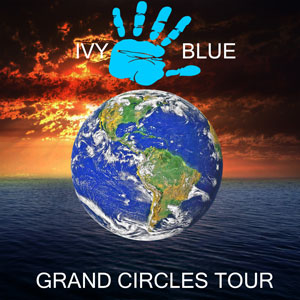
- What is the best piece of advice regarding the music business that you actually followed so far, and what is the advice you didn’t follow, but now know for sure that you should have?
Ivy Blue: I went to a seminar with a songwriting god known as Pat Pattision who teaches at Berkeley earlier this year. He said of songwriting that there are always forks in the road with creativity and business and you can’t always have the best of both worlds. The best way to get around those bends is to follow your heart in the right direction and if it’s what’s meant to be then the rest will follow.
- Reaching audiences usually involves reaching out to the media and possibly working with a PR company. What’s your perspective on the promotion opportunities available to indie artists today? Do you have a manager or label aiding you?
Ivy Blue: I am increasingly lucky that I can speak to people like you and Yaya Diamond and such, about who I am and what I do. Not everyone’s got those opportunities. I would love to even out the playing field and make sure every musician who wants an opportunity to speak has one. I am also lucky that I have Rose and Hayden who believe in me enough to help me get to where I want to go. They are a blessing and I could not thank them or God enough for the beautiful life I have.
- Do you have a musical vision that you haven’t been able to realise for technical or financial reasons – or maybe an idea of what music itself should and could be beyond its current form?
Ivy Blue: To me, you don’t need to spend lots of money to create music. And you don’t need the fanciest gear in the world. If you can dream it you can almost certainly do it. And when I go into a recording studio I just like to create. And the creative process is a unique form in itself.
- What is the next step being programmed on the Ivy Blue agenda? What can fans expect for 2018?
Ivy Blue: I’m currently working on 21’s follow-up (which will be a direct follow-on from this album’s narrative), hopefully that’ll be out near the end of 2018 or very early 2019. I’ll also be touring quite a bit in New Zealand, Europe, North America and the Pacific. Plus, I’ve got a book on the way next year as well so there’s lots of things coming up in the world of Ivy Blue. Stay tuned for more details.
OFFICIAL LINKS: WEBSITE – FACEBOOK – TWITTER – INSTAGRAM
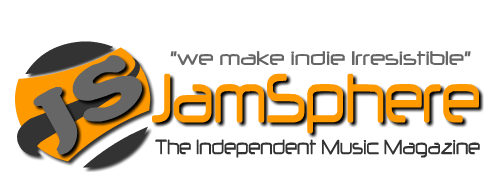
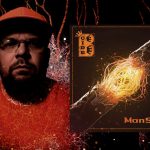

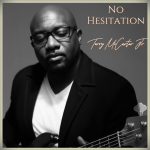



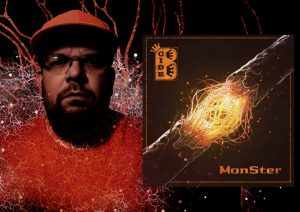
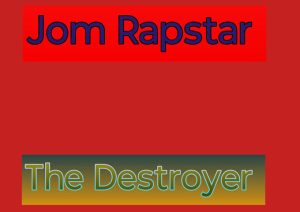
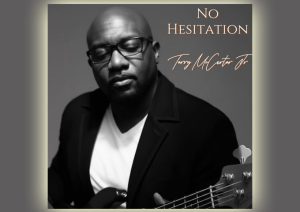
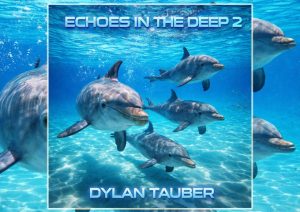
More Stories
Full-Circle Moments: Terry McCarter Jr. on ‘No Hesitation’, Family, Faith, and his Creative Growth
“Hay Zeus”, Heavy History: Ty Bru on Legacy, Layers, and Letting Go at 20 Years of MTTS
The Cosmic Factory on 15 Years of Psychedelic Alchemy and the Making of ‘Lab Grown’